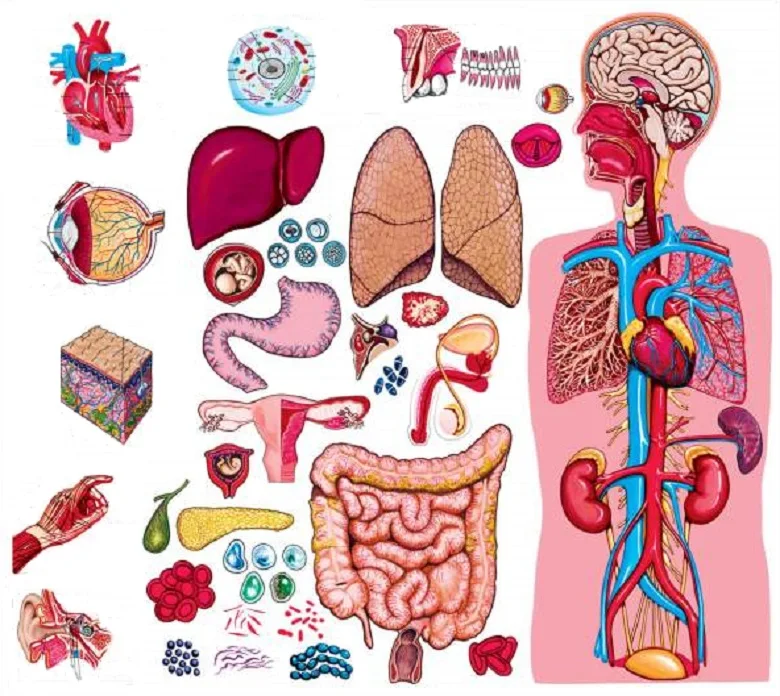An organ is
defined as a specialized structure that consists of different tissues that join
together as a unit to perform a specific function.
There are
approximately 78 organs in human body. Among these 78 organs, 5 organs are
considered vital for survival. These include the heart, lungs, kidneys, liver,
and brain. If any of these five organs stops functioning, the death of the
organism is imminent without medical intervention.
 |
| Organs in the Human Body |
How Many Organs are There in Human Body?
How
many bones are there in our human body? Or how many teeth are there? The
answers to these questions have been found in General Knowledge, Basic
Education, or some films, etc., but what is the total number of organs in our
body? Have you ever thought about this question? No, so now know what the
answer is and how the number varies in counting.
This
question is not as easy as you are guessing. Since ancient times man has been
trying to find the answer to this question.
In Egypt,
an attempt was made to learn about human organs due to coating on dead bodies.
On the other hand, the earliest studies about the human body are found in
China.
Now after
thousands of years, how much science has found the answer to this question?
What is classified as an
organ?
First of
all, it is a matter of understanding what is the meaning of an organ according
to science?
A group of
tissues is called an organ. You will find this definition in science books
after primary school. According to science, every organ works to increase the
capacity of your body and save survival.
Brain,
heart, liver, at least one kidney and one lung are vital organs i.e. one cannot
live without any one of them. There are many other organs that can be lived
without or can be changed with the help of modern science. Now know how the
number of organs is fixed.
Experts
believe that the total number of organs in the human body depends on whom you
ask or how you count. See, there are 206 bones in the human body, now if you
consider a bone as an organ, then the number will be very high, according to a
report published by Live Science, the number of organs in the human body is
generally considered to be 78.
Although
there is no specific information about where this number came from, who told
it, but this number includes all the important organs like the tongue, stomach,
thyroid, pancreas, and yes, bones and teeth have been counted as one part.
Why do experts have
different opinions?
If you talk
to a histologist, the number of organs will be very large because a group of
tissue means an organ.
An example
is also that in 2017, scientists considered intestinal mesentery a new organ,
which was not considered before because it is sticking with the intestine. But
the scientists agreed with the arguments given in this study and then started
thinking about the total number of organs.
Let's count once again
Now look at
the number of 78, you have counted bones as one organ. If bones are counted
separately, then you can say that the total organs are 284 by adding 205 more
to it. Similarly, if the teeth are counted separately, the total organs will
become 315. Similarly, there are more organs in the number of 78, which have
been counted only once, but they are more than one such as nerves, muscles etc.
If you count them separately, then you just have to keep adding them.
Overall this
game can last very long. If you can count up to very small tissue groups, then
you can get up to the number of trillions, but if you do not complicate this
game and understand the necessary organs, then you can be satisfied with the
number of 78.
